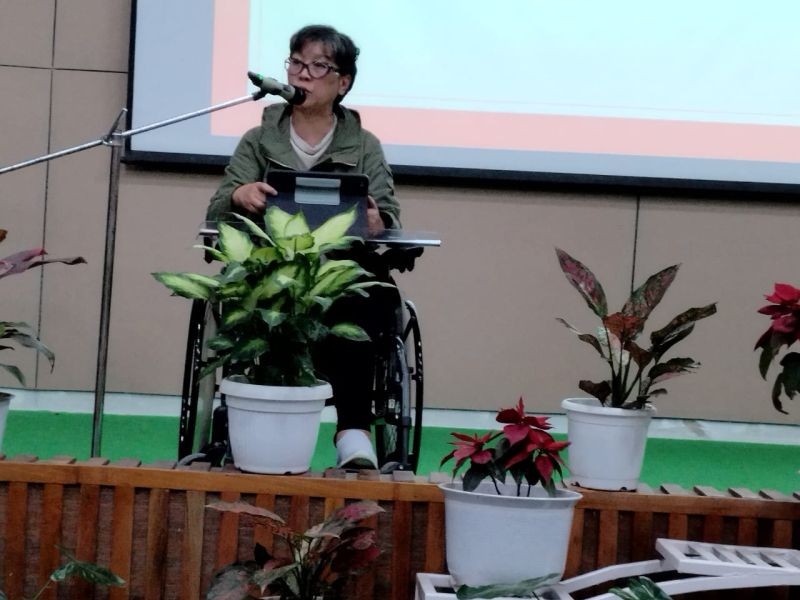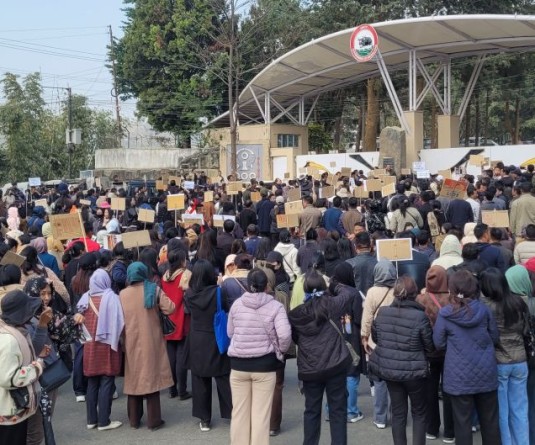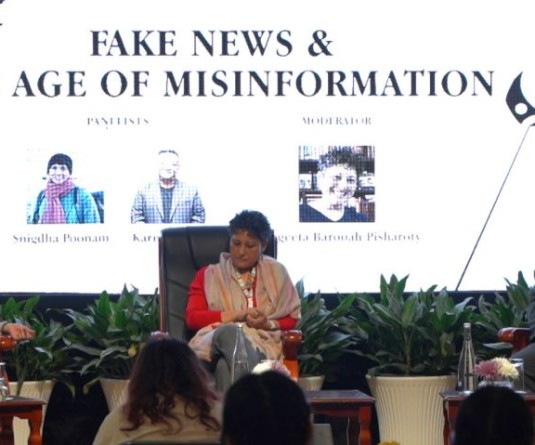Diethono Nakhro, State Commissioner for Disability speaking during the workshop held at CIHSR on February 14.

Dimapur, February 16 (MExN): A one-day workshop on Intellectual & Developmental Disabilities was organized by Precious Gems School, Department of Developmental Pediatrics, CIHSR on February 14. Around 170 participants from colleges, universities, NGOs, churches, teachers, individuals and medical professionals attended the workshop, stated a press release received here.
Speaking on ‘types of Intellectual and Developmental Disabilities (IDD),’ Dr Simpson, HoD of Developmental Pediatrics spoke about Intellectual Disability and Autism Spectrum Disorder, the myths surrounding the condition and the need for special education for children diagnosed with ID and ASD
On ‘the responsibilities of the government providing services to Pwds,’ Dr Imlitemsu Ozukum, MD (PMR), Senior Specialist, In-Charge, DDRC Dimapur highlighted about the RPD Act 2016 regarding free education, free healthcare facilities for many medical conditions, 4% job reservation in NPSC, free travel in NST and disability pension, barrier free environment and voting rights for Pwds. He also talked about the current support needed from the government including, Rehabilitation centres, vocational rehabilitation centres, more trained manpower in the area of disability.
Dr Akumtoshi, Consultant Pediatrician in Zion Hospital spoke on ‘pediatric co-morbidities associated with IDD.’ He talked about various medical conditions that can be seen in children with intellectual and developmental disabilities that need to be addressed by pediatricians. Epilepsy, gastrointestinal disorders, allergies, asthma, cerebral palsy, respiratory infections etc are some common conditions found in children in developmental disabilities and adequate, co-ordinated care must be given from various professionals.
In her talk on ‘Role of State Disability Commissioner's Office,’ Diethono Nakhro, State Commissioner for Disability shared the different types of disabilities included in the RPD Act 2016 along with developmental disabilities and disabilities due to mental illness.
She informed the gathering about the penalties provided by the law for contravention of any of the provisions of the Act such as: insult, intimidation, assault, abuse, neglect, exploitation, voluntary injury or damage, and/or performance of medical procedure on a person with disability without informed consent; and fraudulently availing or attempting to avail any benefit meant for persons with benchmark disabilities.
On ‘Assessments and diagnosis of children with IDD,’ Orentsani N Kithan, Senior Psychologist in CIHSR talked about the various psychometric instruments and tools used by the department to accurately assess and diagnose children with IDD.
Kithan stressed on the importance of assessments as they not only bring out the problems in children but also show the strengths and abilities of the children which can be used to plan effective intervention for their growth.
Keneitsolou Koza, Audiologist and Speech Language Pathologist, CIHSR highlighted ‘speech impairment in children with IDD.’ Koza talked about the types of speech problems and impairments in children with IDD. How impairments vary according to the types of disabilities. The next speaker, Ashish Kindo, Occupational Therapist, CIHSR spoke on ‘occupational therapy for children with IDD.’ Kindo shared about the importance of occupational therapy for children with IDD to improve the child’s functional performance like eating by himself or herself, toilet needs, dressing, writing etc and to enhance the child's ability to interact within his or her physical and social environment.
The topic on ‘mental health issues in parents and children with IDD’ was presented by Imlibenla Mongro-Domeh, Clinical Psychologist, CIHSR. Mongro talked about how parents of children with IDD go through psychological distress, depression, anxiety, stemming from lack of family support, lack of community support in terms of facilities and provisions.
She expressed that while it is the child with IDD that needs intervention the most, even parents of the child have to be given care and support as they are the ones who will be taking care of the child most of the time. “They need to have good mental health support throughout,” she added.






